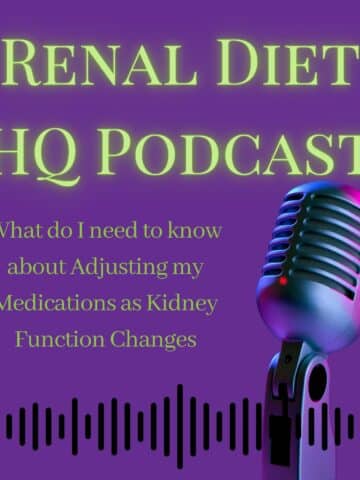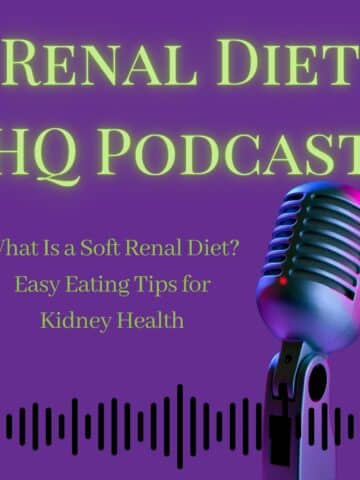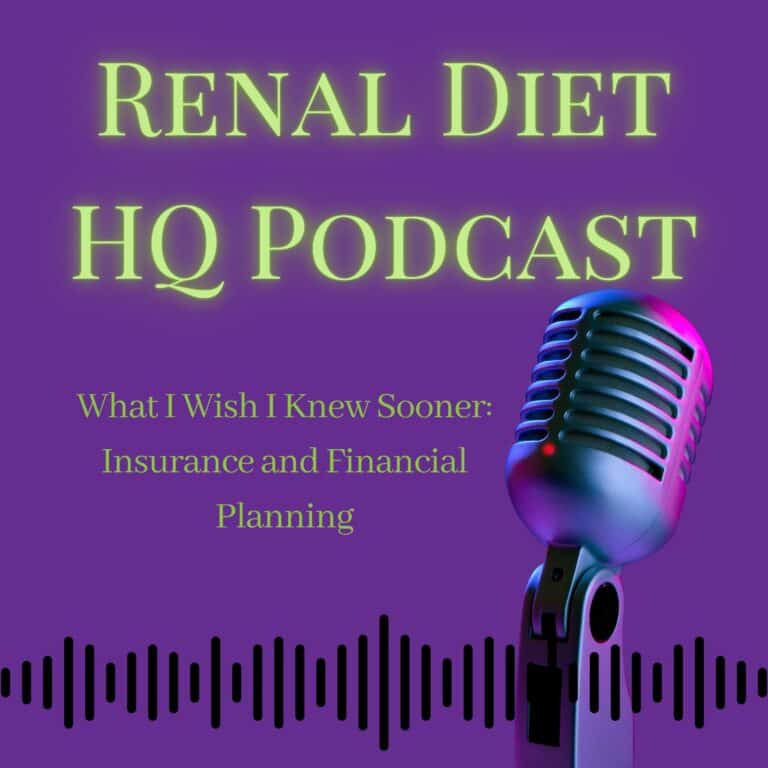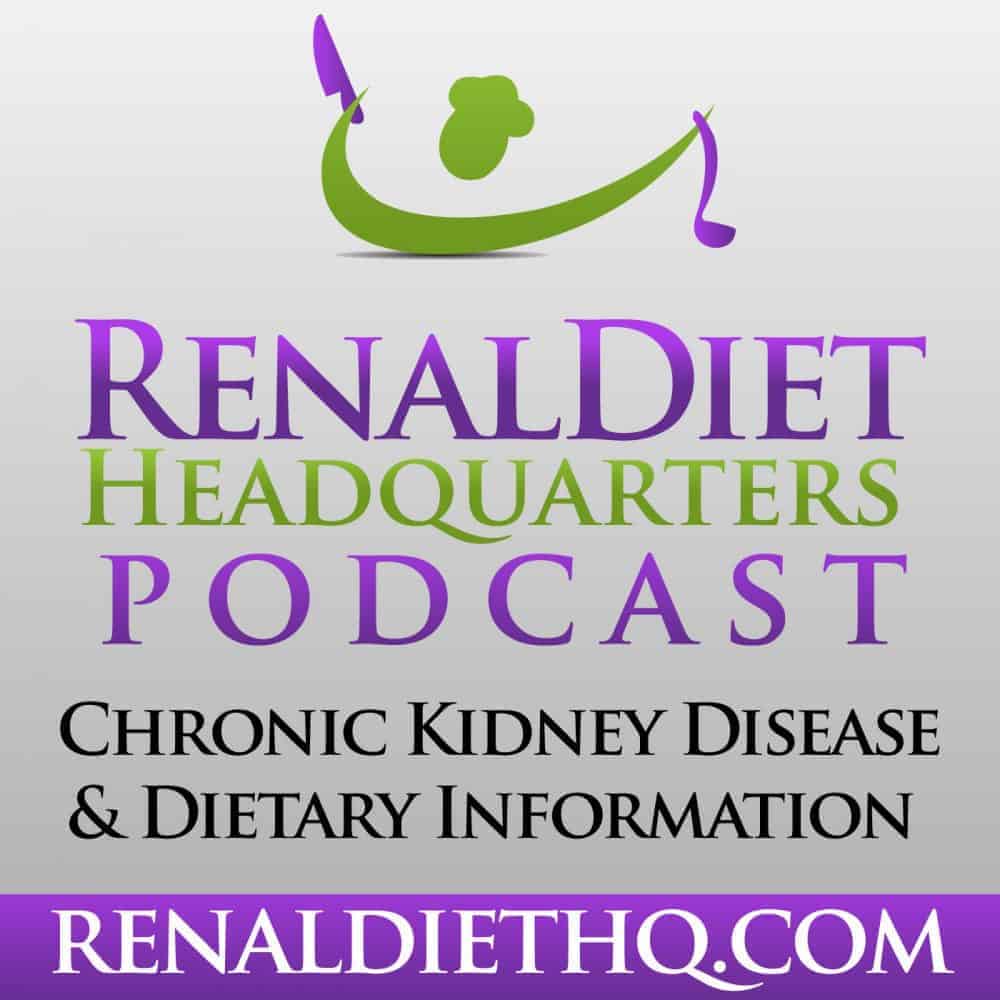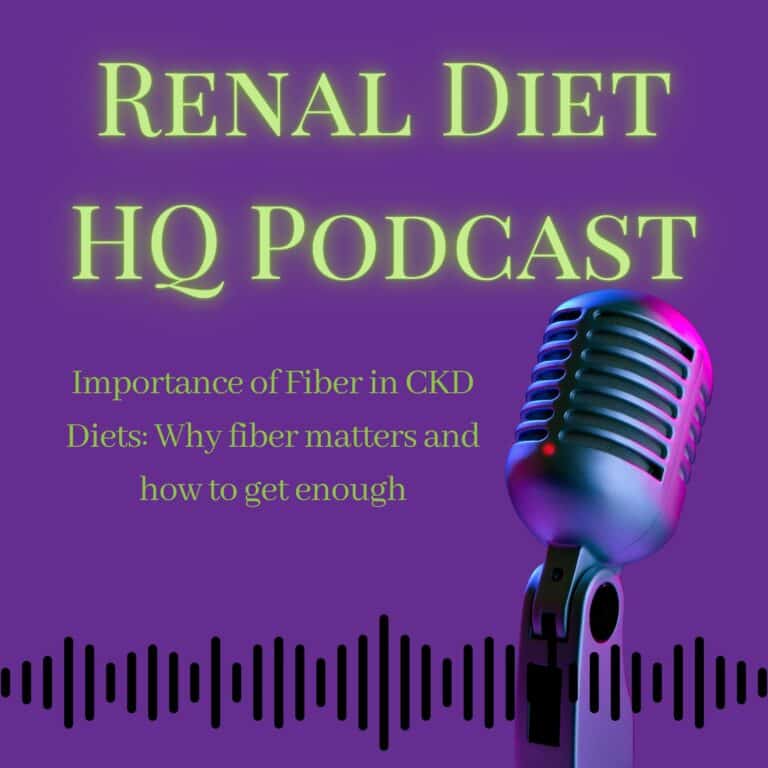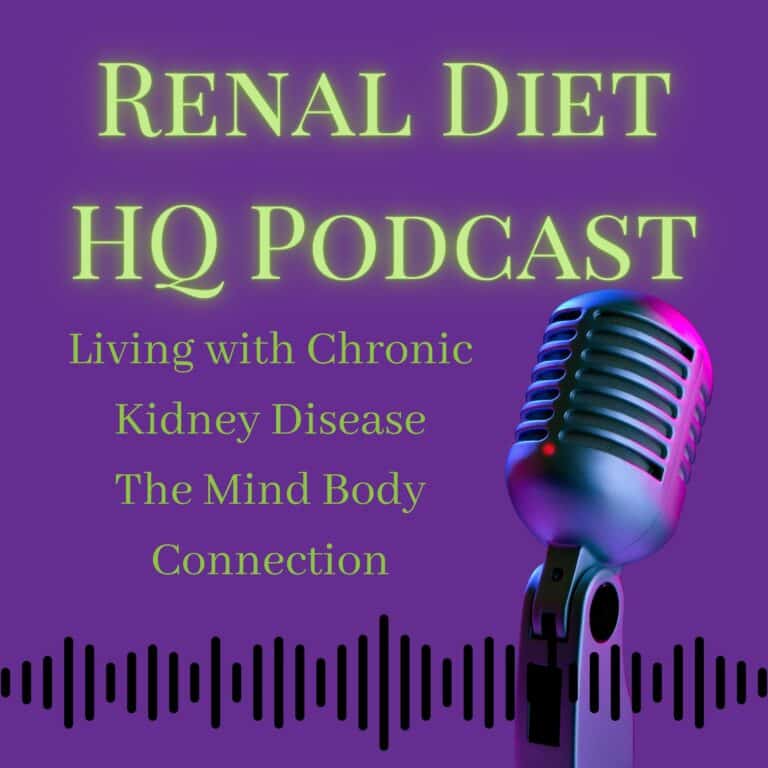What I wish I Knew Earlier: Symptom Subtlety-Podcast
Podcast: Play in new window | Download
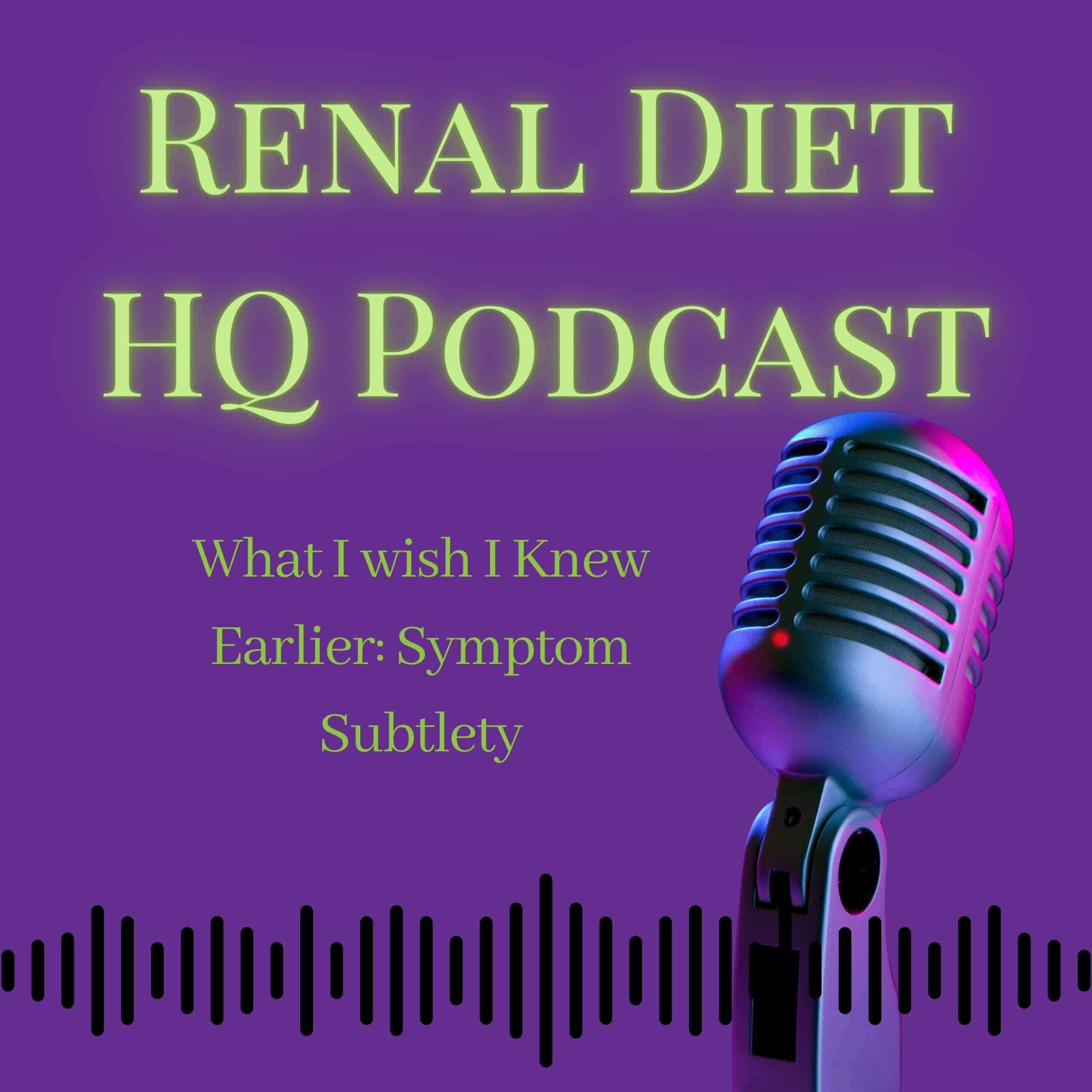
Chronic Kidney Disease (CKD) is a serious condition that often goes unnoticed in its early stages. Many people are unaware of how subtle the early symptoms can be, leading to delayed diagnosis and treatment. Understanding these early signs is crucial for managing CKD effectively. I'm Mathea Ford, a dietitian specializing in kidney health, and today, I want to share insights into the early symptoms of CKD that my patients often overlook. Recognizing these subtle signs can make a significant difference in your kidney health journey.
For More Recipes and Ideas --->> Get Your Free Meals and Recipes That Are Perfect for Pre-Dialysis Diets, Pre-Dialysis with Diabetes, or Dialysis Diets.
The Challenge of Recognizing Early CKD Symptoms
CKD is known for its sneaky onset. The symptoms in the early stages are so subtle that they’re often mistaken for something less serious. Many of my patients have expressed regret that they didn’t realize the importance of these early indicators sooner. Fatigue, difficulty concentrating, and disrupted sleep are just a few of the signs that can be easily dismissed. But these seemingly minor issues could be your body’s way of signaling that something more serious is going on with your kidneys.Common Subtle Symptoms of CKD
Fatigue and Trouble Concentrating
One of the earliest signs of CKD is feeling more tired than usual. You might find it harder to concentrate or notice that your sleep is disturbed. These symptoms are often brushed off as stress or lack of sleep, but they can indicate that your kidneys aren’t functioning as well as they should be. Don’t ignore persistent fatigue—it could be a warning sign of CKD.
Changes in Urination
Another symptom that many of my patients overlook is changes in their urination patterns. You might find yourself urinating more frequently, especially at night, or notice foam in your urine. This foaminess can be a sign of protein leakage, which is an early indicator of kidney damage. Pay attention to these changes, as they could be crucial in detecting CKD early.
Swelling in Feet, Ankles, and Hands
Swelling in the feet, ankles, or hands is often mistaken for normal swelling due to a long day on your feet or something you ate. However, it could also be a sign of fluid retention caused by declining kidney function. If you notice persistent swelling in these areas, it’s important to consult with a healthcare provider to rule out CKD.
Decreased Appetite and Unintentional Weight Loss
A decrease in appetite and subsequent unintentional weight loss can also be early signs of CKD. Some of my patients were initially pleased with their weight loss, only to discover that it was a symptom of a more serious issue. If you’re losing weight without trying, it’s worth investigating whether CKD might be the cause.
The Importance of Early Intervention
Recognizing these subtle symptoms early on can have a significant impact on managing CKD. The sooner these signs are addressed, the more effectively you can work with your healthcare provider to manage your kidney health. Early intervention allows for better management through diet, lifestyle changes, and medical treatment, potentially slowing the progression of the disease.
Risk Factors to Consider
If you or someone you know is experiencing any of these symptoms, especially if there’s a risk factor like diabetes, high blood pressure, or a family history of CKD, it’s crucial to speak with a healthcare provider. These risk factors increase the likelihood of developing CKD, making it even more important to be vigilant about any early signs.
Your body often gives subtle hints when something is off. Paying attention to these signs and acting on them can make a world of difference in managing chronic kidney disease. If you notice any of these symptoms, don’t hesitate to seek medical advice. Early detection and intervention are key to maintaining kidney health.
Take charge of your kidney health today. If you’ve noticed any of these symptoms or have concerns about CKD, consult with a healthcare provider. Also, feel free to share your experiences or questions about CKD symptoms in the comments below. Let’s support each other in the journey to better kidney health.
Learn more about Dining Out With Kidney Disease: Your Ultimate Guide to Healthy Eating-Podcast
Learn more about Unlocking the Secrets to CKD: Essential Diagnostic Tests & How They Help | Mathea Ford, RD-Podcast


